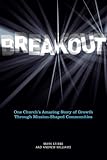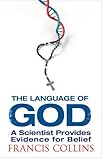 The question of “once saved always saved” has to rank as one of the trickiest theological issues to answer satisfactorily. On the one hand, you have the clear passages that teach the eternal security of the believer, and on the other, you have the dire warnings of Hebrews of the consequences of apostasy.
The question of “once saved always saved” has to rank as one of the trickiest theological issues to answer satisfactorily. On the one hand, you have the clear passages that teach the eternal security of the believer, and on the other, you have the dire warnings of Hebrews of the consequences of apostasy.
Evangelicals have typically gone in one of three directions on this issue:
- The Arminian position – it is indeed possible to lose your salvation, if by your own free will you walk away from God.
- Calvinist position 1 – Those who fall away were never truly saved, hence the warnings speak to false believers, or are only theoretical.
- Calvinist position 2 – The warning passages only speak of loss of reward, not salvation.
As a Calvinist, I am unable to accept the first position, but the second two also are unsatisfying, as they seem to rob the warnings of much of their force. As Mike Ovey points out in the foreword to this book, we must walk a tightrope. One the one hand, there is the danger of complacency regarding our salvation, and on the other is the danger of presenting perseverance as a way of earning our salvation.
In this book, Schreiner attempts to show, from a reformed perspective, how these warnings really do apply to believers, really do warn of loss of salvation, and yet do not compromise the reformed doctrine of assurance of salvation. The book functions as a condensed version of his larger work on the same subject The Race Set Before Us, and he also seeks to respond to some (in his view unfair) criticism of that book, which suggested he was teaching perseverance as works-righteousness.
The first chapter seeks to show that exhortations to persevere are commonplace throughout the New Testament. When a person becomes a believer, they are not told that they will inherit the kingdom no matter what they do. Rather, they are urged to remain and continue in the faith. For example, he cites the example of Barnabas seeing the grace of God, but nevertheless encouraging the recipients of that grace to persevere:
When he came and saw the grace of God, he was glad, and he exhorted them all to remain faithful to the Lord with steadfast purpose (Acts 11:23 ESV)
In a second chapter on how to understand the warnings, he points out that warnings directed at believers are also commonplace throughout the New Testament. Such warnings are not just found in Hebrews, but examples are to be found in the gospels and Paul’s epistles. The warnings in Hebrews, though strongly worded, function in exactly the same way as these other warnings. Schreiner argues that these are clearly warnings of loss of salvation. He gives a brilliant quote from Spurgeon who says that the Spirit had a very good reason for giving us these warnings. We do need to hear them, in order that we may cling to Christ, just as a child whose father warns him of the certainty of death if he falls off a cliff-edge responds by saying, “hold on to me daddy, don’t let me fall”.
The third chapter argues for what is unlikely to be a controversial point, that the call to persevere in faith does not mean that perfection is required. The believer may truly persevere despite occasional sin. Interestingly he suggests that the petition “lead us not into temptation, but deliver us from the evil one” in the Lord’s prayer, is a request that we be protected from falling into temptation in such a way that we apostatise.
In the fourth chapter he seeks to set the record straight on works-righteousness. The need for perseverance should not in any way be understood as us earning our salvation. He argues that the NT teaches that obedience is necessary for salvation, but that obedience springs from faith – faith is the root, and works are the fruit. Works thus function as an indispensible ‘evidence’ of faith. However, we should beware trying to calculate ‘how much’ obedience is required as evidence. The Christian life is from start to finish a call to trust God. Perseverance consists in continuing to trust in the cross of Christ. Works-righteousness then is a form of apostasy just as much as denying Christ is, and it is this that Paul warns against in Galatians. Assurance, therefore, does not come from looking at how well we are obeying, but rather by continually looking to Christ.
In a fifth chapter he returns to the question of assurance. If these warnings are to be taken seriously, how can we have assurance? He begins by rejecting the Arminian position that salvation can be lost, looking at texts such as Phil 1:6. But then he moves to what perhaps is his key argument – the warnings function as a means by which God keeps us trusting in him to the end.
the warnings are one of the means God uses to keep his own trusting him and persevering in faith until the end.
He anticipates the objection that if no one will actually be lost, then the warnings are rendered void, by giving several examples of how a warning that is heeded does not make the warning pointless. For example, in Acts 27, Paul is told by God that no one on the ship would be lost. However, that does not stop him warning soon afterwards, that if the sailors fled the ship, the remaining passengers would not be saved. The warning did not contradict the promise of God that all would be saved. However, the means of the passengers being saved involved the sailors staying on board.
He argues that this is very similar to what Calvinists believe about evangelism. Just because our salvation is based on the sovereign grace of God, it does not follow that the means of preaching the gospel become unnecessary. Similarly, though our perseverance is also based on the sovereign grace of God, the warnings which are one of the means of that perseverance do not become unnecessary. The book closes with a sermon on Gal 5:2-12, developing several of the themes of the book.
Ultimately then, he does take the Calvinist position that those who fall away prove they were never truly saved, citing, for instance, 1 John 2:19, as evidence for this position. But he still maintains that the warnings are intended for the ears of true believers, that by our hearing them, we will be stirred to keep trusting in Christ.
Overall I have to say I thought this book presents a very persuasive argument, perhaps the clearest I have heard on this subject. His approach seems to me to do justice to the solemnity of the warnings presented to us throughout Scripture. It avoids making the warnings in Hebrews “special cases” to be explained away, but treats them as of a piece with many other warnings and encouragements to persevere throughout the New Testament.
I found as I read it that it drove me to pray that God would keep me faithful to him, and keep trusting in Christ alone. It made me wonder whether we have failed in our duty to impress the importance of perseverance on new Christians and established believers alike. When we understand that such exhortations are not contrary to grace, but in fact the means by which God graciously enables us to persevere, then these warning need not be seen as an enemy of either assurance or salvation by grace.









